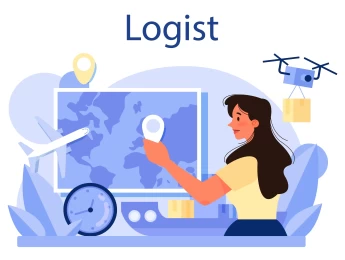Coastal and marine tourism is one of the fastest-growing sectors in global travel and holds immense potential for economic development, environmental conservation, and community engagement. This course is designed to provide tourism professionals and policymakers with a practical framework to manage these unique destinations in a responsible and sustainable manner.
Participants will explore the intricate balance between tourism development and environmental preservation in coastal and marine areas. Through real-world case studies and hands-on tools, learners will gain the strategic insights and operational skills needed to drive sustainable change, enhance destination value, and ensure long-term viability in line with marine ecosystem health and community wellbeing.
By the end of the course, participants will be able to:
- Understand the strategic value and risks of marine and coastal tourism.
- Apply sustainable tourism planning tools in marine contexts.
- Develop marketing and visitor management strategies.
- Align tourism initiatives with marine conservation priorities.
- Build inclusive frameworks with stakeholders and communities.
- Improve decision-making through impact assessments and data.
This course is ideal for:
- Tourism development officers and destination managers.
- Environmental planners and coastal resource managers.
- Government officials working in marine tourism sectors.
- NGO staff involved in eco-tourism or marine conservation.
- Professionals in cruise, diving, or beach tourism industries.
- Policy advisors on tourism and sustainable development.
This training follows a dynamic, interactive approach grounded in adult learning principles. It includes a balanced mix of expert-led lectures, guided group discussions, practical case studies, and scenario-based problem solving. Participants will engage in interactive exercises that simulate real-life challenges in coastal and marine tourism, fostering skills that are immediately transferable to their professional roles. The methodology promotes peer learning and encourages reflective thinking and critical analysis.
Day 5 of each course is reserved for a Q&A session, which may occur off-site. For 10-day courses, this also applies to day 10
Section 1: Foundations of Coastal and Marine Tourism
- Key features and economic significance of marine/coastal tourism.
- Environmental and socio-cultural sensitivities of coastal areas.
- Regional examples of marine tourism development.
- Impacts of over-tourism and climate change on marine destinations.
- Trends and innovations in blue tourism.
- Understanding marine tourism value chains.
Section 2: Sustainable Planning and Destination Management
- Frameworks for sustainable tourism planning.
- Marine spatial planning and protected areas.
- Visitor capacity and impact assessments.
- Destination zoning and infrastructure planning.
- Tourism-climate adaptation strategies.
- Planning tourism in fragile coastal ecosystems.
Section 3: Marine Conservation and Regulatory Compliance
- Marine biodiversity and ecosystem preservation.
- Policy and legal frameworks affecting marine tourism.
- Role of marine parks and no-take zones in tourism.
- Regulatory compliance and enforcement in tourism operations.
- Integrating conservation goals into tourism business models.
- Mitigating tourism’s impact on marine wildlife and habitats.
Section 4: Marketing and Visitor Experience Management
- Branding coastal and marine destinations.
- Developing tourism packages aligned with conservation goals.
- Managing tourism seasons and visitor flow.
- Tools for tracking visitor satisfaction and sustainability KPIs.
- Smart tourism tech for marine destinations (apps, e-ticketing, AR).
- Crisis communication in coastal tourism (e.g., storms, oil spills).
Section 5: Stakeholder Collaboration and Governance
- Identifying key players in coastal tourism management.
- Engaging local communities, fishers, and indigenous groups.
- Cross-sector collaboration: tourism, conservation, and private sector.
- Co-management of marine destinations.
- Developing inclusive policies and participatory planning.
- Conflict resolution in coastal resource use.
Upon successful completion of this training course, delegates will be awarded a Holistique Training Certificate of Completion. For those who attend and complete the online training course, a Holistique Training e-Certificate will be provided.
Holistique Training Certificates are accredited by the British Accreditation Council (BAC) and The CPD Certification Service (CPD), and are certified under ISO 9001, ISO 21001, and ISO 29993 standards.
CPD credits for this course are granted by our Certificates and will be reflected on the Holistique Training Certificate of Completion. In accordance with the standards of The CPD Certification Service, one CPD credit is awarded per hour of course attendance. A maximum of 50 CPD credits can be claimed for any single course we currently offer.
- Course Code IND15 - 130
- Course Format Classroom, Online,
- Duration 5 days








